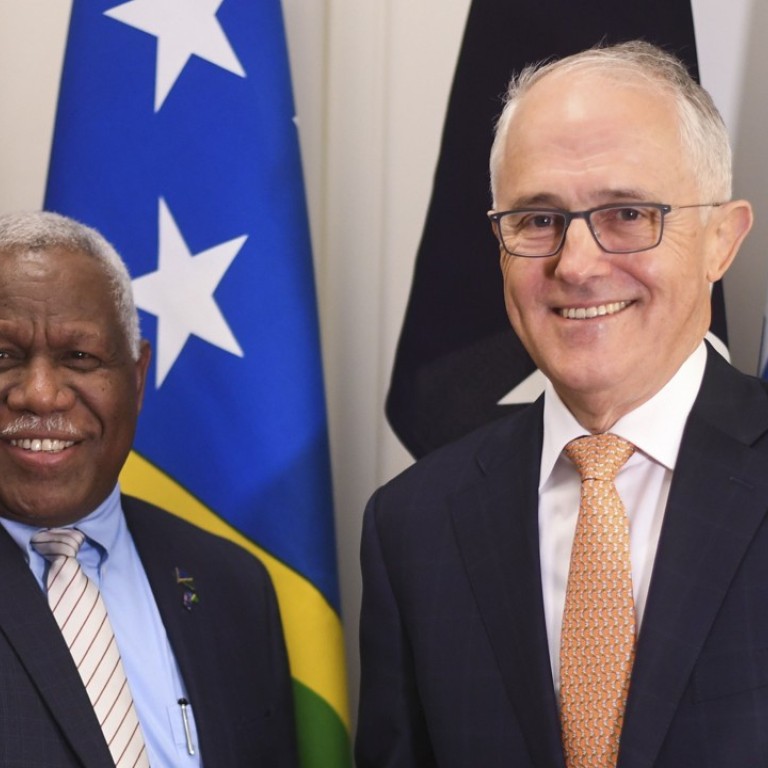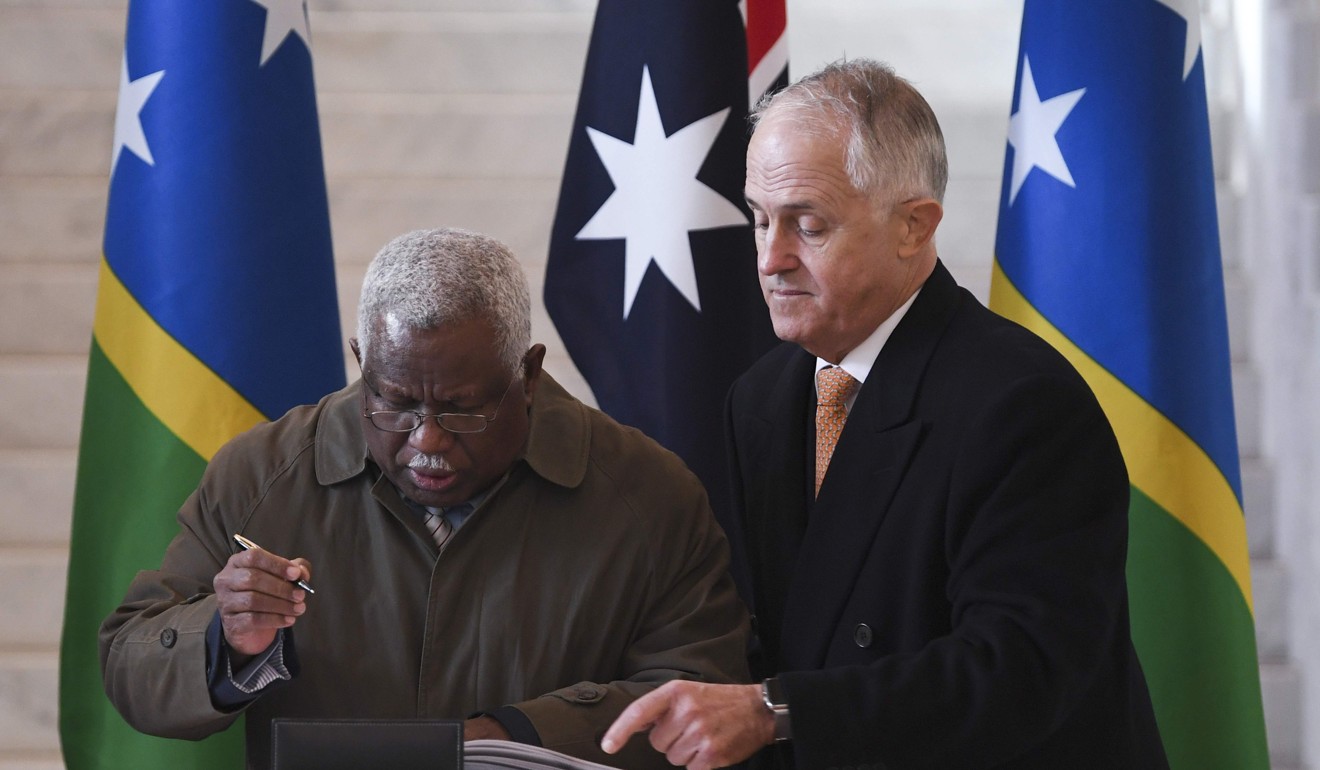
Solomon Islands drops Chinese tech giant Huawei for billion-dollar undersea cable, signs Australia
It comes as Canberra refocuses its foreign aid programmes to win hearts and minds in the island nations of the Pacific, and as Beijing also flexes its muscle in the region
Australia will help fund and build an undersea communications cable to the Solomon Islands, it was agreed Wednesday, after the Pacific nation was convinced to drop a contract with Chinese company Huawei.
The impoverished country and Huawei signed a deal in late 2016 to construct the fibre-optic cable from Australia to Honiara to improve its often unreliable internet and phone services.
But Solomon Islands Prime Minister Rick Houenipwela said last week there had been a change of heart following “some concerns raised with us by Australia”, without elaborating.
The move comes with Australia refocusing its foreign aid programmes to win hearts and minds in the island nations of the Pacific, as China flexes its muscle in the region.
It pledged more than A$1.3 billion (US$970 million) in its national budget last month to fund projects such as the communications cable, which will also link Papua New Guinea.
Canberra and other regional capitals have become increasingly alarmed at Beijing’s push into the Pacific through “soft diplomacy”, which could potentially upset the strategic balance in the region.
Australian Foreign Minister Julie Bishop refused to detail what concerns Canberra had with telecom giant Huawei.
“I would not elaborate on security issues, that’s not appropriate,” she told reporters.
“What we have offered the Solomon Islands, and they have accepted, is an alternative to the offer, and ours is cheaper. It’s likely to be a faster result for them, and technically superior.”
Huawei was blocked from bidding for contracts on Australia’s ambitious national broadband project in 2012, reportedly due to concerns about cybersecurity.
Huawei has long disputed claims of any links to the Chinese government.
According to broadcaster ABC, Australia’s spy boss Nick Warner and other senior officials visited the Solomons last year and returned with concerns about Huawei being permitted to plug into the country’s telecommunications infrastructure.
Until Australia stepped in, Huawei had planned to lay the cables for the Pacific archipelago nation, which could ultimately have given the Chinese company access to a broadband hub in Sydney.

They reportedly believed that while Huawei was an independent company, it retained links to the Chinese government and could pose a threat to Australian infrastructure in the future.
After meeting Houenipwela in Canberra Wednesday, Prime Minister Malcolm Turnbull said Australia will also jointly fund a domestic telecommunication cable network linking remote provinces in the Solomons to the capital Honiara.
“As we step up our engagement in the Pacific, we are working as partners with Solomon Islands more closely than ever to ensure stability, security and prosperity in the region,” he said.
Analysts said the prospect of Huawei gaining access to the Australian broadband network would have raised a red flag for Australian internet security.
Jonathan Pryke, a Pacific Islands foreign policy expert with the Lowy Institute, an Australian think tank, said Australia’s move also pushed back Chinese diplomatic efforts in the Solomons, one of six in the Pacific to have official relations with Taiwan.
A Huawei spokesman told Reuters it was never informed of any security problems with its planned cables for the Solomons.
Huawei has faced scrutiny from security authorities around the world and especially in the United States, where it was the subject of a 2012 investigation over whether its equipment provides an opportunity for foreign espionage – something the company has consistently denied.
It was blocked on security grounds from working on Australia’s national broadband system in 2012.
Relations between Australia and China are currently under a cloud as a crackdown on foreign meddling in Australia’s politics appears to target China.
Agence France-Presse and Reuters

.png?itok=arIb17P0)